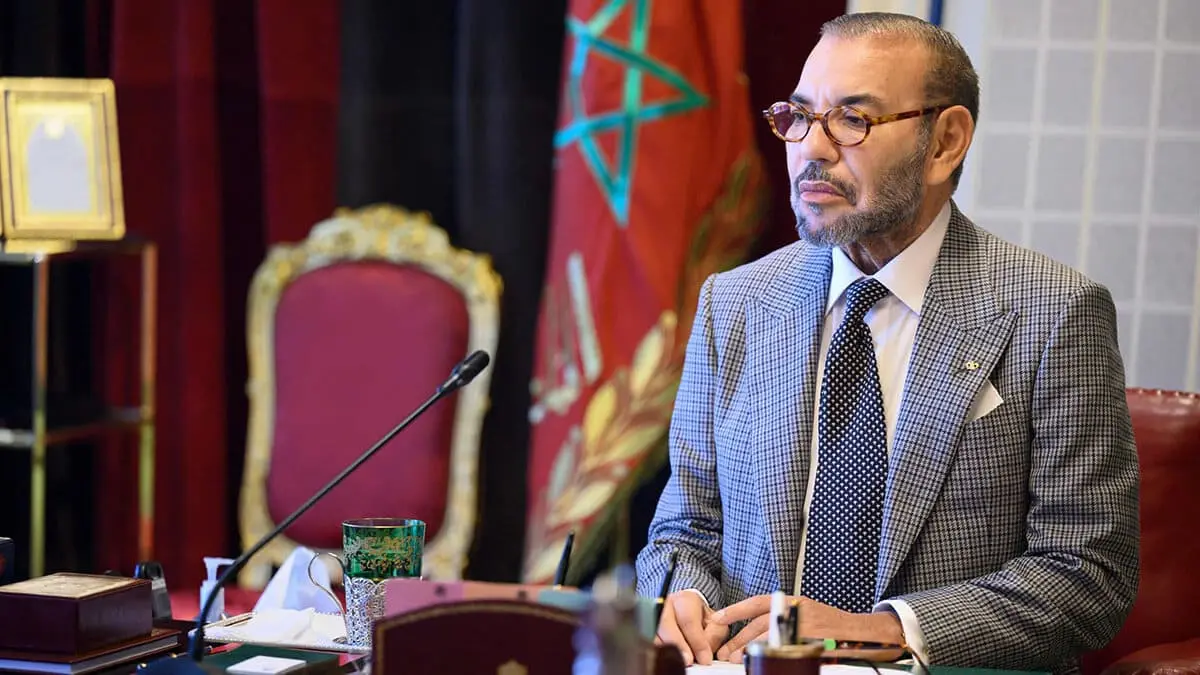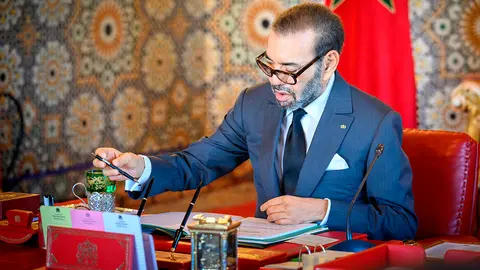Political leadership and transitional justice

Others, in order to gain access to truth, justice, reparation and non-repetition after periods of conflict/repression, have decided to implement processes that combine various judicial and non-judicial approaches within the framework of transitional justice.
Indeed, transitional justice is not only a set of measures to address human rights violations in societies emerging from armed conflict or authoritarian regimes, revealing the truth, providing justice to victims and repairing the damage of the past, through judicial and non-judicial mechanisms, but also procedures and guarantees of non-repetition in the future, re-establishing the rule of law and reinforcing social trust in national institutions. No truth is worth anything without just reparation for the victims, and no just reparation is worth anything without guarantees of non-repetition.
The objectives of transitional justice are based on the combination of four pillars without which its effectiveness would be seriously compromised: the right to truth, the right to justice, the right to reparation and the right to guarantees of non-repetition. It is not only about justice and reparation, but also about reconciliation and reconstruction, hence the complexity of transitional justice.
In Morocco, the commemoration of the twentieth anniversary of the creation of the Equity and Reconciliation Instance was a propitious occasion to recall the importance and relevance of this important event in the country's contemporary history. Among the questions raised on this occasion about the specificity of this experience and its contribution, I would highlight the interest in how the transitional justice process in Morocco constituted a decisive turning point in the process of democratic mutation, as well as in the consolidation of the rule of law and the protection of freedoms.
The answer to this question requires, in my view, an understanding of the context in which transitional justice intervened in Morocco. In general terms, it can be argued that the very logic of transitional justice is to intervene in contexts characterised by extremely significant violence and radical change, if originally it seemed to concentrate on a few cases, its field of activity has gradually been extended to five situations in which processes of this type will intervene:
- The end of a dictatorship and the reconstruction of a democratic society, as is the example of South Africa in 1996.
- The end of a conflict and the conclusion of an agreement between the belligerents, as in the DRC or the Central African Republic.
- The commission of genocide and the willingness to prosecute the perpetrators, as in Rwanda or Cambodia.
- The self-transformation of an authoritarian regime into a more liberal system, such as the Equity and Reconciliation Commission set up in Morocco in April 2004 by King Mohammed VI, which consisted of investigating the repressions committed over a period of 43 years, from 1956 to 1999.
In light of this typology, we can better understand the specificity of transitional justice in Morocco as an instrument for democratisation and societal change. Rather than punitive justice, it is restorative justice, a justice of ‘never again’, in which the aim is not only to repair the harm suffered, but also to reconcile and rebuild.
Generally speaking, the mechanism of guarantees of non-repetition established by transitional justice requires various legislative and institutional reforms to avoid the repetition of human rights violations, learning from the lessons of the past, establishing transparency, accountability and the rule of law, but also ensuring a future free of violence, oppression and impunity, either by focusing on rebuilding the security services and the armed forces, as is the case in some international experiences, or by prioritising the reform of the judiciary and the modernisation of the justice system, as is the case in the Moroccan experience. There are other measures that fall within the framework of guarantees of non-repetition, such as the preservation of memory and the revision of educational curricula to contribute to the consolidation of education in the values of citizenship and human rights.
According to international experience in several countries in South America, Eastern Europe and Africa, the independence of the judiciary is at the forefront of judicial reform, as a guarantee of non-repetition. Transitional justice aims to ensure an independent and impartial judiciary that is not subject to political pressure and promotes the rule of law. In addition, criminal laws and judicial procedures must be reformed to bring them in line with international human rights standards and to allow for the prosecution of perpetrators of serious crimes, such as war crimes and crimes against humanity.
These judicial reforms are not an end in themselves, but a means to ensure justice and accountability. They are a mechanism to deter repeat violations and to establish a judicial system capable of dealing with future violations. In experiences such as Rwanda, Chile and Morocco, judicial reforms have been an essential component of transitional justice, serving as a basis for building more just and democratic societies.
As for the place that transitional justice recommendations should have occupied in the process of reforming the judicial system in Morocco, it should be underlined that strengthened political leadership plays a decisive role in the transitional justice process, and Morocco is a prime example that confirms this equation, as transitional justice in Morocco is a Real project par excellence, a project of self-transformation that is well taken on board. If all transitional justice should have a legal framework on which to base itself, which can be a national charter or a parliamentary legal text or a governmental decree, transitional justice in Morocco is legally based on a Royal Dahir (decree). Since the Consultative Council on Human Rights proposed to His Majesty King Mohammed VI, on 14 October 2003, the creation of a special commission, called the Equity and Reconciliation Commission (IER), to prepare the final closure of the file on human rights violations committed in the past, through the creation of this commission by Royal Decree and the installation of its members in the Royal Palace in Agadir on 6 January 2004, as well as the royal speech on the occasion of the fulfilment of the IER's mission and the announcement of the decision to publish its final report and allow public opinion to have access to it, up to HM's call to constitutionalise its recommendations in his speech of 9 March 2011, the King was throughout this process the leader who directs, inspires and sponsors the IER's work.
Thus, this process was fundamentally linked to the Royal will to put an end to the violations of the past and strengthen the rule of law, and entirely based on its philosophy and stakes, on an inclusive and forward-looking Royal vision, which has made it a strategic state project, carried out under the special patronage of His Majesty the King.
The same is true of the judicial reform process, which the King places at the forefront of the major reform projects led by His Majesty. It was he who initiated this great national project when, in his 2008 Speech from the Throne, he called for ‘a broad dialogue to develop a precise project for a profound reform of the judicial system’. His Majesty would return to the subject less than a year later, to include the principle of the independence of the judiciary in the constitutional reform process, which he announced in his speech of 9 March 2011, stressing that the new Constitution would be based on seven main pillars, the third of which was to ‘elevate the judiciary to the status of an independent power’. Less than a year later, His Majesty devoted his speech of 20 August 2009 to the comprehensive and profound reform of the judicial system, which he considered one of the main projects of institutional modernisation and development, insisting that this fundamental reform should be based on a new modernist perspective, focusing on priority areas such as strengthening guarantees of independence, modernising the legal system as well as its judicial and administrative structures, rehabilitating human resources, increasing the efficiency of judicial procedures and implementing judicial deontology.
In the same vein, it should be noted that the prospect of judicial reform raised by His Majesty the King was reinforced by the provisions of the new Constitution of the Kingdom, which devoted 22 articles to it, stipulating that the judiciary is independent of the legislative and executive powers, establishes the King as the guarantor of the independence of the judiciary, creates the Supreme Council of the Judiciary as a constitutional institution presided over by His Majesty the King, and provides for the rights of litigants and the rules for the administration of justice, as well as the role of the judiciary in protecting the rights of individuals and groups and their freedoms.
In his speech on 8 May 2012, on the occasion of the inauguration of the members of the High Authority for the National Dialogue on Justice System Reform, His Majesty called on all stakeholders to participate in this dialogue, which he pledged to nurture and follow up in order to prepare a comprehensive national charter for justice system reform.
It is obvious that transitional justice plays a decisive role in judicial reform in Morocco and vice versa, as they are two complementary processes with a clear strategic dimension and a forward-looking vision. King Mohammed VI is the main actor in both processes and the guarantor of their transformative effects. The transitional justice process was initiated by a Royal decision, and its recommendations were constitutionalised by a Royal directive. Similarly, judicial reform is a national project that was inspired, in its methodology and objectives, by Royal directives, to merge with the recommendations of transitional justice in a single dynamic, namely the dynamic of reform and modernisation led by His Majesty the King.
We can conclude that the Moroccan experience, like various international experiences, has given transitional justice recommendations an essential place in judicial reforms, for multiple reasons related to the role of the judicial system in achieving justice, protecting rights and freedoms, and promoting the rule of law, which led various international experiences of transitional justice to integrate the reform of the judicial system as a basic guarantee of non-repetition into their guiding approaches and implementation mechanisms.
In this context, several countries have included guarantees of non-repetition in their constitutions as part of transitional justice processes. In Colombia, the 1991 Constitution establishes mechanisms to guarantee and protect human rights, in Argentina, the 1994 constitutional reform included principles aimed at avoiding the repetition of human rights violations, and in South Africa, the post-apartheid Constitution includes guarantees aimed at avoiding the repetition of violations, while other countries that have experienced transitional justice processes have not yet included guarantees of non-repetition in their constitutions, such as Venezuela, where no clear guarantees have been established in the Constitution, Nicaragua and Honduras, Chile, where the 1980 Constitution inherited from the Pinochet dictatorship is still in force, and which does not explicitly include such guarantees, while the process of drafting a new constitution is encountering major obstacles, especially after the rejection by the Chilean people in December 2023, for the second time, of a draft constitution drawn up by a right-wing-dominated Assembly, perceived as conservative and unrepresentative of popular aspirations, in addition to its widely criticised limitations in terms of human rights protection.
A retrospective look at the Moroccan experience of transitional justice, in the light of international experiences, would allow us to deduce that this experience, which is unprecedented in our regional environment and distinctive on a continental and global level, has a particular characteristic.
This characteristic concerns the fact that these constitutional, legislative and institutional guarantees of non-repetition are framed within a constitutional order that attributes to the King a fundamental role in the protection of the democratic option and human rights, the King is, according to the constitution, ‘the guarantor of the permanence and continuity of the State and supreme arbiter between institutions, He ensures respect for the Constitution, the proper functioning of constitutional institutions, the protection of democratic choice and of the rights and freedoms of citizens and communities, and respect for the Kingdom's international commitments’. Therefore, the maximum guarantee of non-repetition, in addition to legislative and institutional guarantees, is de facto and de jure the King; it was the King who motivated and initiated the process of transitional justice in Morocco; it is the King who ensures the constitutionalisation and implementation of its recommendations; it is the King who is the constitutional guarantor that enforced disappearances, arbitrary detentions, torture and other cruel, inhuman or degrading treatment or punishment will never again be committed; it is the King who is the guarantor.
It is true that constitutional, legislative and institutional guarantees of non-repetition have enabled Morocco to turn the page on the past of systematic political repression and put an end to serious human rights violations, but it is clear that without His Majesty's patronage it would have been almost impossible to turn this page. It should be recalled in this regard that the weakness or absence of strong political leadership has negatively affected several transitional justice processes and mechanisms in many African and Latin American countries (Paraguay, Peru, Honduras, Nicaragua, Tunisia, Libya...). In Spain, transitional justice continues to be a challenge marked by the wounds of the past, presenting a complex and multidimensional panorama, where memory, justice and reconciliation, as well as the construction of an inclusive and restorative history for the future continue to confront current political conflicts. The 2022 law on democratic memory, while representing a positive step towards transitional justice in Spain, is still insufficient and restricted, its treatment of the wounds of the past has not yet been fully taken on board, and, as highlighted in the latest report of the Special Rapporteur on the promotion of justice, reparation and guarantees of non-repetition, the very contrasting approaches of successive governments suggest that progress on transitional justice may remain hostage to partisan politics.
Successful transitional justice processes require leadership qualities that are indispensable to the complexity and sensitivity of these contexts. Effective political leadership is crucial to build trust and establish credibility among the parties involved, facilitating dialogue and reconciliation. A charismatic leader is able to integrate and coordinate actions among the different actors to ensure a cohesive approach, thus encouraging the participation of diverse groups, especially victims, and ensuring that their voices are heard.
In this sense, the South African experience under the leadership of Nelson Mandela and the Moroccan experience under the leadership of King Mohammed VI can be considered among the most successful continental and international experiences. Both leaders have known how to guide the process towards truth, justice and reparation, avoiding its diversion towards particular interests or internal conflicts, and making guarantees of non-repetition efficient.



